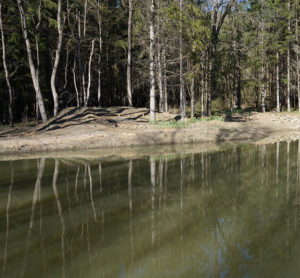Changing nature of time
by D.E. Bentley –
Attention spans are getting shorter and mine is no exception. Proof of this sad but actual phenomenon has presented itself most recently as I attended area concerts, first Tom Petty and the Heartbreakers and, more recently, Ian Anderson performing Jethro Tull. I recall concerts where the audience was transfixed, and wanted to listen intently, fearful of missing even a moment of the performance. At these recent concerts, and a few years ago at a Carlos Santana concert, people were on the go constantly as they ran for drinks, food, the bathroom or what have you. It seems that the fine art of just sitting still, listening and watching, is on the way out.
Then there was the recent eclipse. I can’t tell what others did during this historical moment in space time but I did notice, as “bites” were taken from our sun by the moon, a slowing of traffic noise on nearby roads.
 More importantly, I registered a slowing in my own movements. We opted to spend this time relaxing, pausing beneath the shade of a black walnut tree on the shore of our small rural pond. We set up a chair and a small table for our drinks and gathered a few simple tools so we could whittle away on wood projects – mine a walking stick many years in the making, my partner’s a spoon.
More importantly, I registered a slowing in my own movements. We opted to spend this time relaxing, pausing beneath the shade of a black walnut tree on the shore of our small rural pond. We set up a chair and a small table for our drinks and gathered a few simple tools so we could whittle away on wood projects – mine a walking stick many years in the making, my partner’s a spoon.
Periodically venturing out of the shade to mark the progress of the eclipse, as the sun’s light crescent moved from left to right, I also took the time to watch and listen to the animal activity all around us, curious as to how dark was dark enough for an impact on day-loving species. I concluded that 70%, our regional percentage of sun coverage was not enough to make a difference. Perhaps our earliest ancestors noticed the changing light from similar partial eclipse events, but the animals around us paid it little mind. Honey bees kept flying, the green frogs lounging in the water remained content and quiet, our resident snapper lifted his head above the surface then slid below the waters edge as I walked by and our two pups rested in the shade with no indication that they perceived a difference.
Still, I felt a change as I allowed myself to slow to a different rhythm for a brief escape from life’s energetic and active flow and my normal state of constant motion. It was while we were sitting in our seat (a two seat folding type that we often take to concerts and other outdoor events) that Todd noticed a disruption in a nearby branch and nudged me slowly, quietly into awareness. There, no more than fifteen feet away, sat a juvenile hawk with the characteristic black and white mottling on the wings and tail feathers. The young bird — we did not see enough to identify for sure what kind he/she was— sat there for several minutes, and we stopped to watch. Time stood still briefly and perhaps even the moon halted momentarily until the youngster took to the wing and darted across the pond and toward the swamp below.
Soon after, I noticed again a bustle of activity all around as cars moved along the road, doors banged in the distance and the back up signal on a truck ushered forth its alert. The animal activity continued as well, as we gathered up our empty glasses and continued to move through the day – lamenting the shortness of the reprieve while looking forward to 2024, when a full eclipse will be visible in our area and we can again pause as darkness passes by and light and activity returns, along with rushing thoughts and a swift passing of time.